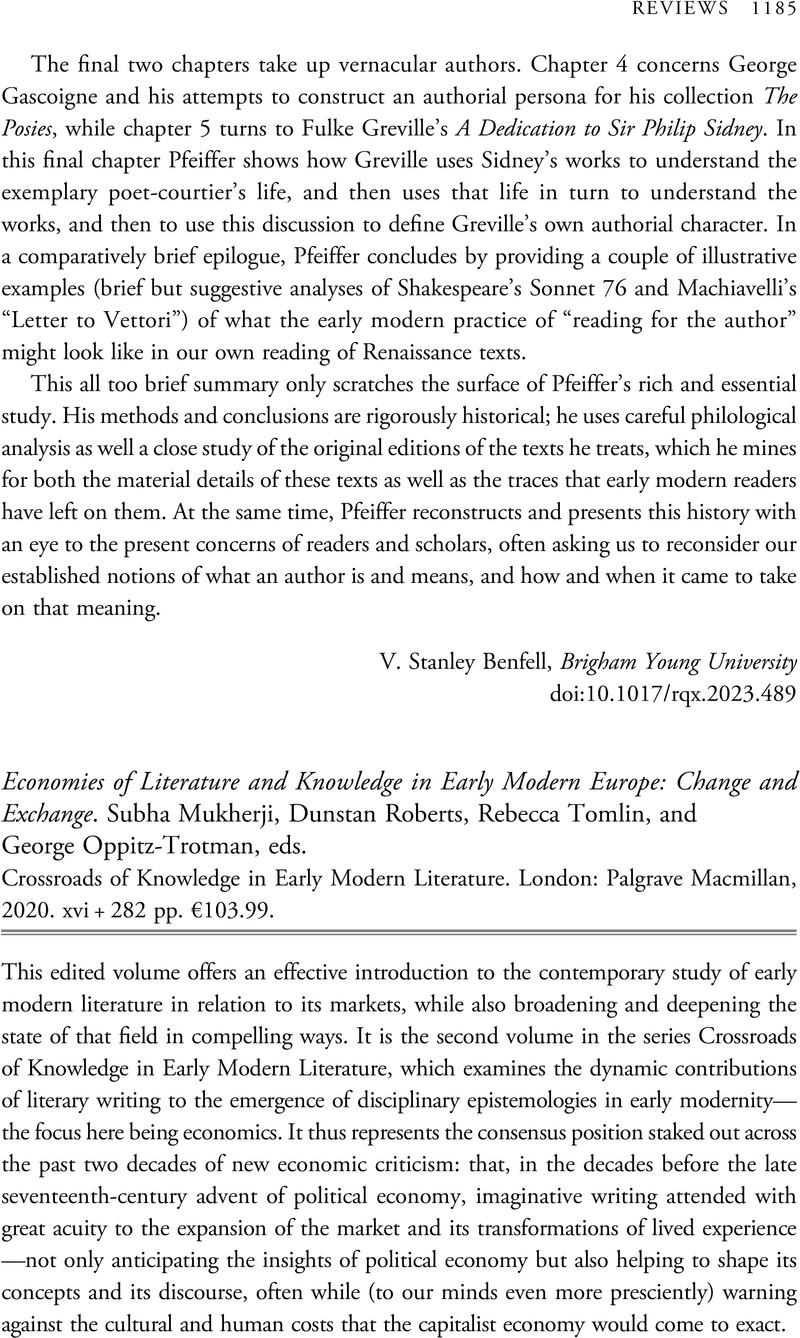No CrossRef data available.
Article contents
Economies of Literature and Knowledge in Early Modern Europe: Change and Exchange. Subha Mukherji, Dunstan Roberts, Rebecca Tomlin, and George Oppitz-Trotman, eds. Crossroads of Knowledge in Early Modern Literature. London: Palgrave Macmillan, 2020. xvi + 282 pp. €103.99.
Review products
Economies of Literature and Knowledge in Early Modern Europe: Change and Exchange. Subha Mukherji, Dunstan Roberts, Rebecca Tomlin, and George Oppitz-Trotman, eds. Crossroads of Knowledge in Early Modern Literature. London: Palgrave Macmillan, 2020. xvi + 282 pp. €103.99.
Published online by Cambridge University Press: 15 November 2023
Abstract
An abstract is not available for this content so a preview has been provided. Please use the Get access link above for information on how to access this content.

- Type
- Review
- Information
- Copyright
- Copyright © The Author(s), 2023. Published by the Renaissance Society of America



